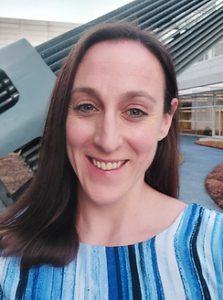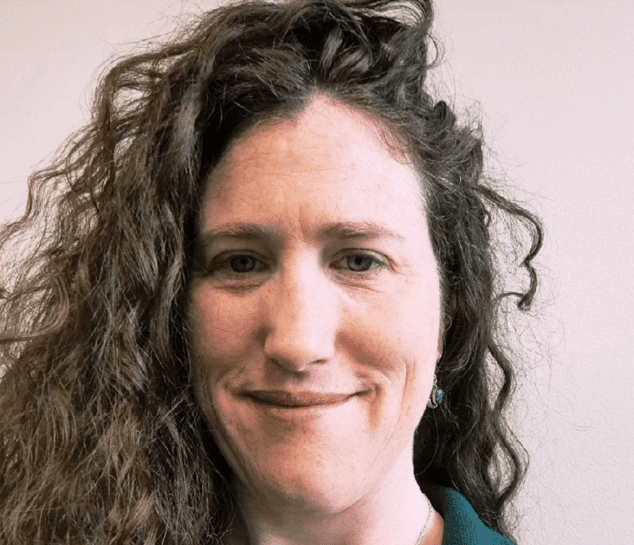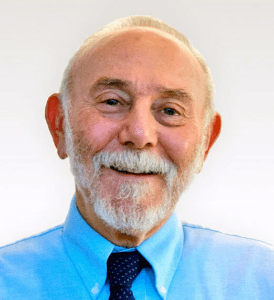AI in Language Learning – Friend or Foe? (2 hours)
This interactive online session, recorded on May 3, 2024, discussed how AI powered programs can be used to enhance language learning and teaching.
We will consider the following questions:
- What exactly is AI, and what types of AI exist?
- What are pedagogical considerations and guidelines for utilizing AI?
- What are practical applications of AI in the language classroom, and how can it be used in our particular setting?
ABOUT THE FACILITATOR
Heidi Kempt Chew, Ph.D. has been an English as a Second Language (ESL) professional for two decades, teaching academic courses as well as community/refugee classes. In addition, she has been as cross-cultural trainer conducting workshops for the International Student Services at the Case Western Reserve University and training volunteers working with international student groups at Case Western Reserve University and the Cleveland State University. Heidi holds Master’s Degrees in Theology, Journalism, and in Curriculum and Instruction-ESL. Her Ph.D. is in Secondary Education-ESL and Cross-Cultural Training.


 LeighAnn Tomaswick is the Innovation
LeighAnn Tomaswick is the Innovation  As Chief Learning Officer of Mustard Seed Training, Meagen supports adult and family education providers to create a more just and loving society. In addition to training and professional development, Mustard Seed Training builds and creates materials for Catechesis of the Good Shepherd and other interactive methods of faith formation with children.
As Chief Learning Officer of Mustard Seed Training, Meagen supports adult and family education providers to create a more just and loving society. In addition to training and professional development, Mustard Seed Training builds and creates materials for Catechesis of the Good Shepherd and other interactive methods of faith formation with children.
 Aaron Muttillo, Ph.D. has worked with children and adolescents in public, private, and non-profit settings for more than 20 years. He has extensive experience managing programs that serve students with diverse learning abilities. Aaron is a licensed school psychologist and holds a doctorate in urban education from Cleveland State University. Aaron is committed to creating educational settings that are research-based, dynamic, and joyful.
Aaron Muttillo, Ph.D. has worked with children and adolescents in public, private, and non-profit settings for more than 20 years. He has extensive experience managing programs that serve students with diverse learning abilities. Aaron is a licensed school psychologist and holds a doctorate in urban education from Cleveland State University. Aaron is committed to creating educational settings that are research-based, dynamic, and joyful. Carmine Stewart, PhD is the Director of the Aspire Program at the Neighborhood Centers Association in Cleveland, Ohio. Carmine has worked in adult literacy for eighteen years as a volunteer tutor, instructor, program coordinator, program director, instructional designer, professional developer, researcher, and content developer. She is passionate about helping beginning adult readers, and educating educators about learning and instruction. She dreams of eliminating illiteracy as a social problem and recently started a company “Ending Illiteracy” to extend her work assisting beginning readers beyond the adult literacy space. Carmine is the President and CEO of Aspire Consulting and Educational Services, conducting research, evaluation, professional development, executive coaching, and diversity training. Carmine is the President of the Ohio Association of Adult and Continuing Education (OAACE), the moderator for the United States Department of Education’s LINCS Diversity, Equity, and Inclusion Community, the Chair of the Association of Adult Literacy Professional Developers (AALPD), and a member of the NAACP Education Committee. Carmine earned her doctorate from Cleveland State University in August 2012 after defending her dissertation, “Teacher Preparation and Professional Development in Adult Literacy Education.”
Carmine Stewart, PhD is the Director of the Aspire Program at the Neighborhood Centers Association in Cleveland, Ohio. Carmine has worked in adult literacy for eighteen years as a volunteer tutor, instructor, program coordinator, program director, instructional designer, professional developer, researcher, and content developer. She is passionate about helping beginning adult readers, and educating educators about learning and instruction. She dreams of eliminating illiteracy as a social problem and recently started a company “Ending Illiteracy” to extend her work assisting beginning readers beyond the adult literacy space. Carmine is the President and CEO of Aspire Consulting and Educational Services, conducting research, evaluation, professional development, executive coaching, and diversity training. Carmine is the President of the Ohio Association of Adult and Continuing Education (OAACE), the moderator for the United States Department of Education’s LINCS Diversity, Equity, and Inclusion Community, the Chair of the Association of Adult Literacy Professional Developers (AALPD), and a member of the NAACP Education Committee. Carmine earned her doctorate from Cleveland State University in August 2012 after defending her dissertation, “Teacher Preparation and Professional Development in Adult Literacy Education.”